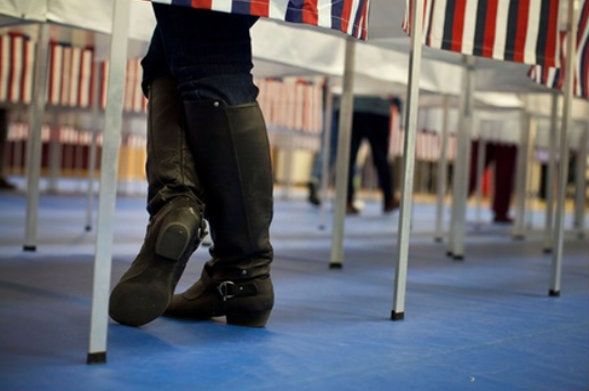One of my pet peeves is those “I Voted” stickers.
I am betting that somebody stuck one on the lapel of the mentally incompetent woman who was bused in to vote by people at her residence.
She said she had voted for president and then asked, “President of what?”
The important thing isn’t just voting—a vote should be preceded by study of the candidates and issues and careful weighing of the alternatives.
Voting should not be done lightly, and I for one am glad that voting requires being registered to do so. Taking the trouble to register ensures that the voter is taking the process seriously.
The Obama administration is pushing a plan that could promote more uninformed voting.
Columnist George Will writes:
Attorney General Eric Holder considers it self-evidently alarming that 60 million adult citizens were not registered in 2008. He wants Washington to register everyone automatically. “The arc of American history,” he says, “has bent towards expanding the franchise.” But the fact many people do not register to vote is not evidence that the franchise is restricted, other than by voters’ inertia.
When people who don’t care enough to register to vote, they are not going to be informed voters.
They are also going to be precisely the kind of voter who can be targeted and persuaded to vote by a campaign for a candidate about whom they absolutely nothing.
Will quotes Assistant Attorney General Thomas Perez complaining that voting can be “an endurance test” with long lines. One reason for this is that there may be questions about a voter’s registration and voter rolls aren’t kept up to date.
But why are the rolls kept so badly? The Heritage Foundation’s Hans von Spakovsky, a former member of the Federal Election Commission, explained to Will:
“One of the reasons that state voter registration rolls are in such poor shape today — with large numbers of voters who are dead, have moved or are noncitizens — is because of the restrictive standards imposed by the federal government in 1993 by the National Voter Registration Act. That law made it very difficult to remove ineligible voters. Local jurisdictions were sued so often by the Justice Department when they tried to remove ineligible voters, many stopped trying to clean up their lists at all. That is why there are many places around the country where the number of registered voters is greater than the Census says there are individuals of voting age.”
In the 1960 presidential election, 62.8 percent of age-eligible people actually cast votes. The percentage has declined with every subsequent election, though the requirements for voting (poll taxes or literacy requirements) have been removed. In some cases, there are good reasons not to vote. Perhaps the voter can't make up her mind. Perhaps either candidate will do a dandy job. Manic voting is not to be encouraged, in my humble opinion. As Will notes, there is nothing inherently noble about high voter turnout:
Those who think high voter turnout indicates civic health should note that in three German elections, 1932-33, turnout averaged more than 86 percent, reflecting the terrible stakes: The elections decided which mobs would rule the streets and who would inhabit concentration camps.
I wonder if they got “I Voted” stickers.


